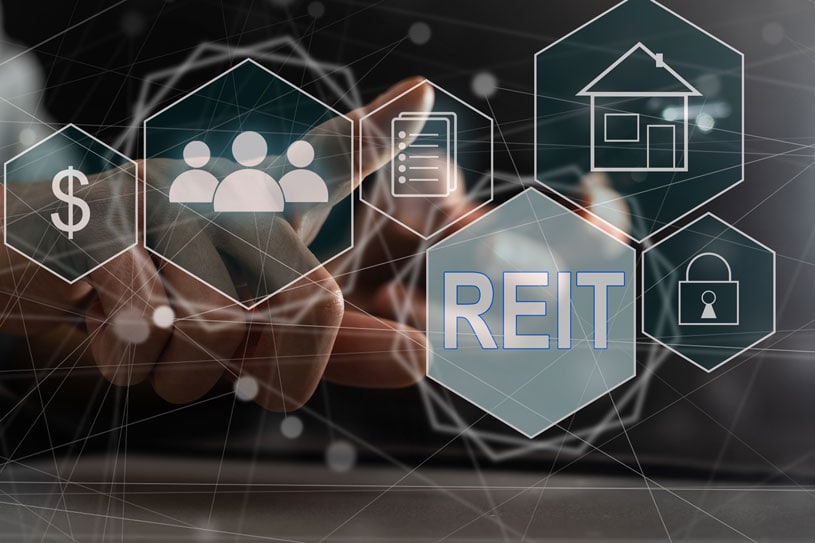Real Estate Investment Trusts (REITs) have long relied on traditional capital markets to fuel their growth. Whether through public equity offerings, private placements, or debt instruments, REITs raise billions of dollars annually to acquire, develop, and manage income-generating properties. But as financial technology evolves, a new frontier is emerging that may radically alter how REITs source and deploy capital: Decentralized Finance (DeFi).
DeFi refers to a blockchain-based ecosystem of financial services that operates without centralized intermediaries like banks, brokerages, or traditional exchanges. By using smart contracts, digital wallets, and crypto assets, DeFi enables direct, permissionless access to lending, borrowing, and investment opportunities on a global scale.
For REITs, especially those seeking innovative and diversified funding methods, DeFi presents a unique opportunity to tap into new pools of capital, issue tokenized securities, and streamline investor relations. At the same time, DeFi introduces complex regulatory, technological, and security challenges that cannot be overlooked.
This article explores how DeFi is influencing REIT capital-raising strategies, the benefits and limitations of decentralized financing, and what it means for investors and regulators in both developed and emerging markets, including countries across the Arab region.
Traditional REIT Capital Raising: An Overview
Before diving into DeFi, it is important to understand how REITs traditionally raise capital.
1. Public Offerings
Public REITs are listed on stock exchanges and can issue equity through Initial Public Offerings (IPOs) or follow-on offerings. This allows retail and institutional investors to buy shares, providing the REIT with permanent capital to acquire or develop real estate assets.
2. Debt Instruments
REITs issue corporate bonds, mortgage-backed securities, or secure lines of credit. Because of their consistent cash flows from rental income, REITs often enjoy favorable borrowing terms. However, excessive leverage can expose them to market risks.
3. Private Placements and Institutional Funding
REITs also raise capital through private placements, often targeting high-net-worth individuals, pension funds, or sovereign wealth funds. These transactions are governed by complex legal agreements and require intermediaries such as investment banks and law firms.
4. Joint Ventures and Strategic Partnerships
In some cases, REITs collaborate with other developers, financiers, or governments to co-invest in large projects. This structure reduces capital risk but adds operational complexity.
While effective, these traditional methods can be expensive, slow, and geographically limited—often excluding smaller investors or participants in emerging markets. This is where DeFi introduces a disruptive alternative.
What Is DeFi and How Does It Work?

DeFi, short for Decentralized Finance, is a movement that uses blockchain technology to recreate financial services without centralized control. Built on platforms like Ethereum, Solana, or Polygon, DeFi protocols allow users to lend, borrow, invest, and trade assets using smart contracts and cryptocurrencies.
Key components of DeFi include:
- Smart Contracts: Self-executing agreements that manage transactions autonomously.
- Decentralized Exchanges (DEXs): Platforms like Uniswap and Curve that allow peer-to-peer trading without intermediaries.
- Lending Platforms: Protocols like Aave and Compound enable users to deposit crypto and earn yield or take loans against collateral.
- Stablecoins: Digital tokens pegged to fiat currencies (e.g., USDC, DAI) used for transactions and liquidity.
- Liquidity Pools: Investor-supplied capital used to fund loans or trades, in return for a share of transaction fees or interest.
DeFi platforms are open, programmable, and borderless, making them attractive for REITs looking to experiment with new capital channels or reach underrepresented investor groups.
How DeFi Can Transform REIT Capital Raising
REITs are beginning to explore DeFi tools to unlock efficiencies and broaden access to capital. Here are the most prominent areas of transformation:
1. Tokenized Real Estate Offerings
One of the most powerful intersections between REITs and DeFi is the ability to tokenize real estate ownership. Through Security Token Offerings (STOs), REITs can issue blockchain-based tokens that represent equity shares or debt instruments, making it easier to fractionalize ownership and reach global investors.
- These tokens can be distributed directly to retail or institutional investors without traditional intermediaries.
- Investors can trade these tokens on decentralized exchanges or security token marketplaces, enhancing liquidity for a historically illiquid asset class.
Tokenization also makes it possible for investors to invest with small amounts of capital—potentially as little as $100—opening up REIT participation to a broader demographic, including young investors in Arab markets.
2. DeFi Lending as a Capital Source
Rather than relying solely on banks or bond markets, REITs could tap into DeFi lending pools to borrow against tokenized real estate assets. By pledging tokenized property as collateral, REITs may access stablecoins or cryptocurrencies through smart contracts.
Benefits include:
- Faster funding cycles: Loans can be issued almost instantly after verification.
- Lower transaction costs: Eliminates legal and underwriting fees.
- 24/7 access: DeFi markets never close, allowing funding at any time.
While this is still experimental, some projects have successfully used NFTs or tokenized real estate to secure collateralized DeFi loans.
3. Yield Farming and Treasury Management
REITs managing large cash balances (e.g., from recent capital raises or rental income) can explore DeFi yield farming to earn interest on idle funds. Platforms like Yearn Finance and Balancer enable short-term yield optimization across lending protocols.
This offers REITs:
- Higher returns than traditional savings accounts
- Enhanced capital efficiency
- Access to liquidity during idle periods
However, this practice carries smart contract and market risks and is more suitable for innovative or tech-savvy REITs with proper risk frameworks.
Advantages of DeFi for REITs
The potential benefits of DeFi for REIT capital raising are significant, particularly for emerging market REITs or smaller players looking to innovate.
1. Global Capital Access
DeFi platforms are borderless. This allows REITs in regions like the Middle East, North Africa, or Southeast Asia to attract capital from global investors who might otherwise lack access to local REITs due to listing restrictions or currency controls.
2. Fractional Investment and Financial Inclusion
By issuing tokens and reducing minimum investment thresholds, REITs can attract smaller investors, including millennials, diaspora populations, and crypto holders looking for real asset exposure.
This approach aligns with financial inclusion goals in many Arab nations, where real estate remains a culturally significant and preferred investment channel.
3. Transparent and Auditable Transactions
Blockchain provides a transparent ledger of all transactions. Investors can see distributions, audit performance, and track the use of funds in real-time. This improves trust and reduces dependency on third-party verifications.
4. Lower Costs and Faster Processes
DeFi eliminates many intermediaries—reducing fees for underwriting, escrow, custody, and compliance. Smart contracts also speed up administrative processes such as investor onboarding, dividend distributions, and token redemptions.
Challenges and Limitations
While DeFi offers tremendous potential, several challenges must be addressed before it can be widely adopted by REITs:
1. Regulatory Uncertainty
Most DeFi protocols operate in legal gray areas. In many jurisdictions, tokenized real estate is treated as a security, subject to strict laws around disclosures, investor protections, and licensing.
REITs must navigate:
- Securities and Exchange Commission (SEC) or equivalent authority rules
- Anti-Money Laundering (AML) and Know Your Customer (KYC) laws
- Property transfer and title registration regulations
For example, a token representing real estate ownership in Cairo cannot simply be sold to a U.S. investor without ensuring full compliance with Egyptian and U.S. securities laws.
2. Volatility and Collateral Risks
If REITs raise capital in cryptocurrencies or stablecoins, they face exposure to price volatility, especially in the case of non-collateralized tokens. Even stablecoins may be affected by de-pegging risks or regulatory crackdowns.
Additionally, using tokenized real estate as DeFi loan collateral introduces risks of liquidation if asset values fall or smart contracts misfire.
3. Smart Contract Security
Smart contracts are not immune to bugs or cyberattacks. Several DeFi platforms have suffered multi-million-dollar exploits due to flawed code or vulnerabilities.
REITs adopting smart contracts must invest in:
- Third-party code audits
- Insurance solutions
- Secure blockchain infrastructure
Any error could lead to lost investor funds, reputational damage, or regulatory penalties.
4. Market Immaturity and Liquidity Constraints
Although the DeFi market is growing rapidly, it is still relatively immature compared to traditional finance. Liquidity can be thin, and investor appetite may vary depending on market cycles or technological trends.
For large REITs raising hundreds of millions of dollars, DeFi may not yet offer sufficient depth to replace conventional capital sources entirely.
Regional Perspectives: DeFi and REITs in the Arab World
Countries in the Arab world are increasingly embracing fintech, digital assets, and blockchain regulation. This environment is ripe for experimentation with DeFi tools in real estate.
1. UAE and Saudi Arabia
The UAE—particularly Dubai and Abu Dhabi—has positioned itself as a regional hub for blockchain innovation. Regulatory sandboxes in the Abu Dhabi Global Market (ADGM) and Dubai International Financial Centre (DIFC) are allowing tokenized real estate projects and digital asset platforms to operate under supervision.
Similarly, Saudi Arabia’s Vision 2030 supports digital transformation in real estate and financial markets. The Capital Market Authority (CMA) is evaluating blockchain applications and the issuance of digital securities.
This creates opportunities for REITs based in these countries to pilot DeFi-based funding structures or collaborate with global DeFi platforms while complying with local law.
2. Egypt, Bahrain, and Jordan
While still early in the adoption curve, countries like Egypt and Bahrain are investing in financial inclusion and digital asset regulation. Tokenized REIT offerings could help democratize property ownership in crowded cities, tourist zones, or infrastructure developments.
However, clear legal recognition of smart contracts, digital securities, and DeFi transactions is necessary before these models can scale sustainably.
Case Study: A Hypothetical Tokenized DeFi-Enabled REIT
Imagine a real estate firm in Abu Dhabi launching a REIT that owns a portfolio of residential buildings across the GCC. Instead of issuing traditional shares, the REIT creates real estate-backed tokens on a regulated blockchain.
- Tokens are offered globally via a smart contract-based sale, accepting payments in USDC and AED.
- Investors receive monthly rental dividends automatically through the blockchain.
- The REIT pledges part of its token inventory to a DeFi lending platform to secure working capital at a low interest rate.
- The funds are used to acquire new properties or renovate existing ones.
- All transactions, distributions, and leases are recorded immutably on-chain, viewable by investors at any time.
This model could provide faster funding, greater investor engagement, and enhanced transparency while complying with UAE law and protecting investor rights.
Conclusion
DeFi presents a transformative opportunity for REIT capital raising, enabling a new generation of investors to participate in real estate markets via blockchain technology. From tokenized equity and automated compliance to direct investor engagement and smart contract governance, DeFi tools can significantly expand REIT funding options—especially in emerging and digitally progressive regions like the Arab world.
However, this evolution must be approached with caution. Regulatory clarity, cybersecurity, and investor education are essential to ensure trust, legality, and sustainability. While DeFi won’t replace traditional REIT funding overnight, it will increasingly complement it—offering flexibility, speed, and global reach that conventional methods cannot match alone.
As DeFi matures and regulatory frameworks evolve, the REITs that embrace innovation responsibly will be best positioned to lead in the next era of real estate finance.










